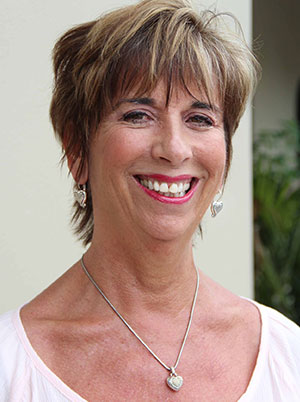“You can’t help growing older, but you don’t have to grow old.” – George Burns
Almost a decade ago, my family sat in the hospital waiting room, waiting to hear the outcome of the surgery I was undergoing to repair the damage caused by a sudden cerebral aneurysm. My surgeons appeared with the good and the bad news for my family. I had survived the surgery, but my surgeon warned, it was too early to know if I would recovery my memory or ever speak again. To which my brother responded, “Too bad about the memory.”
As you can tell, I grew up in a family that laughed a lot. The 1950s were the stage for the “First Act” of my life. It was filled with hours of us gathered around a black and white television laughing along with “Leave it to Beaver,” “I Love Lucy,” Imogene Coca, Sid Caeser, Jack Parr, Red Skelton, Danny Kaye, Ernie Kovacs, George & Gracie, Carl Reiner. Regardless of what was happening in the world, these shows made you laugh and feel better.
Inspired by these comedy greats and by the work and teachings of Norman Cousins and others like him on “The Healing Power of Laughter & Play,” I used my “Second Act” to become a social worker and tour the country holding workshops to teach other therapists to use humor and play to help their clients.
I did recover my memory and, to my brother’s dismay, my ability to speak following the surgery. But recovery took time and a friend suggested I try an acting class in a local community theater to help me through this period. My first classes were in a rundown former bar that had been abandoned during the great recession. Some of my classmates were actual rats and cockroaches. The teacher of the class was a charismatic fellow who taught improvisational theater. Although following directions was challenging, I had so much fun at the first class that I decided to sign up for a six-week class and have continued taking Improvisational Theatre classes and workshops ever since.
So, there I was in my “Third Act,” recovering from brain surgery and a double knee and double hip replacements. I was the eldest member of my improv group and I was not as agile as the predominantly young white men who made up the group. If I played a game that required siting on the floor, I wasn’t sure if I could get up again! I suppose it’s not surprising that I was often cast as someone’s mother or grandmother. But I kept going because my teacher encouraged and validated me and soon, I began teaching as well. Being part of that improv team and working on supporting and loving each other was an incredible mind-blowing experience for me.
I wanted to learn everything I could about this improv, and went to different parts of the country to study improv at festivals. Each time I attended a workshop, I came home with renewed energy and commitment to play. For 9 years I was fortunate to attend the Annual Improv Festival at Will Luera’s FST. I learned from so many terrific teachers and discovered that I could make choices! Through the festival I met many folks that I’ve studied with on Skype and continue to do so on Zoom.
I left that team about five years ago and ever since then I’ve been teaching improv which I have learned in my “Third Act,” is my love and my mission. As a psychotherapist I’ve applied improvisational theatre techniques to my work with people with Parkinson’s and other neurodegenerative diseases along with their care partners, people with anxiety and depression and people on the Autism spectrum.
The results have been terrific, and I believe I get as much out of teaching than my students do.
Several years ago, I started a podcast called improv interviews. Because there were a limited class-opportunities in my area, I wanted to talk to other improvisers, play with them and learn more about improvisation. Through my podcast — Improv Interviews — I met terrific therapists and other professionals who use improv clinically to help others. I have been blessed to interview some of my favorite improv teachers including David Razowksi, Jay Sukow, Aretha Sills, Gary Schwartz, Jimmy Carrane, Susan Messing, Racheal Mason, Joe Bill and a host of other wonderful improvisers.
Improv became the theme of my “Third Act” when I was 61 years old. I’m 71 now, and am thrilled to meet other improvisers like Miki Manting and the folks at Vintage Improv who are making their “Third Act” the best one ever by embracing improv.
The Pandemic has hit the theatre and improv world very hard. Improvisers rose to the challenge and immediately began offering online classes and workshops to support people through this difficult time. Being guided by Acceptance and Yes, and… we are resilient folks and giving hope and inspiration around the world.

Margot’s next workshop, “Improv for Anxiety” starts soon. Contact her via email for more info: at .